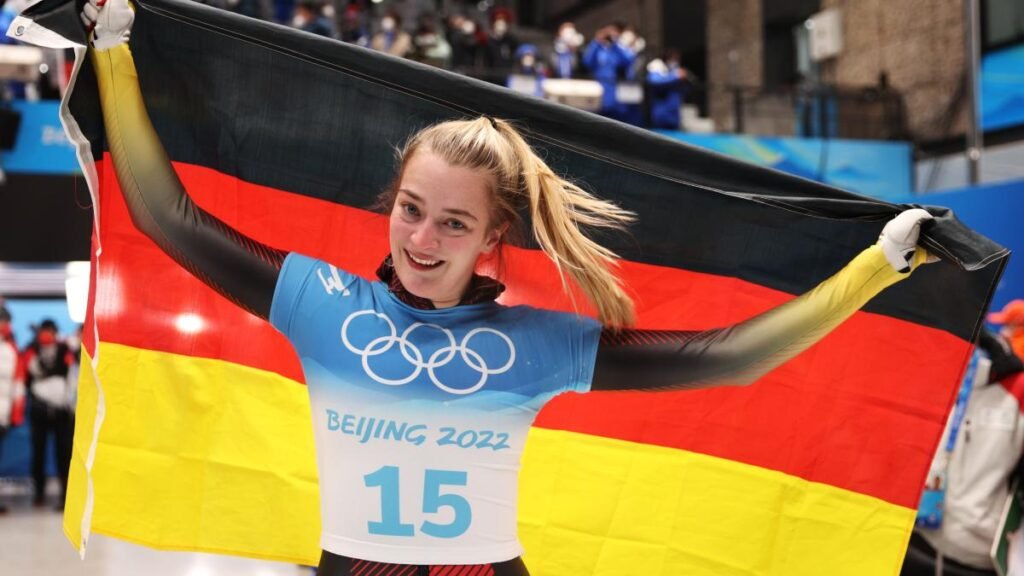In the high-stakes world of global sports, the Olympic Games stand as the pinnacle of athletic achievement. However, the integrity of these games is frequently questioned, especially regarding judging and scoring. Controversies have marred the Olympic spirit, leading to calls for more transparency and fairness in how athletes are evaluated. Enter blockchain technology—a revolutionary solution that promises to restore trust in Olympic judging and scoring.
The Problem: Trust Issues in Olympic Judging and Scoring
From figure skating to gymnastics, Olympic events that rely heavily on subjective judging have often been the center of controversy. Accusations of biased judging, favoritism, and even outright corruption have plagued the Olympics for decades. For instance, the infamous 2002 Winter Olympics figure skating scandal, where a French judge admitted to being pressured into favoring the Russian pair, shook the sporting world. Such incidents undermine the credibility of the Olympics and erode the trust of athletes, spectators, and stakeholders.
The complexity of scoring systems in sports like gymnastics, diving, and boxing further complicates the issue. These sports require judges to evaluate performances based on a set of criteria, often leaving room for interpretation. Even with the best intentions, human error and bias can creep into the scoring process, leading to unfair results.
Blockchain: A Game-Changer for Olympic Scoring
Blockchain technology offers a robust solution to the problems of bias and lack of transparency in Olympic judging. At its core, blockchain is a decentralized ledger that records transactions in a secure, immutable, and transparent manner. When applied to Olympic scoring, blockchain protocols can ensure that every score and judgment is recorded transparently, eliminating the possibility of manipulation or bias.
Decentralization: A Transparent System
One of the most significant advantages of blockchain is its decentralized nature. In a traditional judging system, scores are often recorded and processed by a centralized authority. Which can be susceptible to manipulation. In contrast, a blockchain-based system distributes the scoring data across multiple nodes, making it nearly impossible for a single entity to alter the results.
For example, each judge’s score could be recorded on a blockchain network, where it is visible to all stakeholders in real time. This transparency ensures that any discrepancies or irregularities can be immediately identified and addressed, significantly reducing the chances of biased or unfair judging.
Immutable Records: Ensuring Integrity
Blockchain’s immutability feature ensures that once a score is recorded, it cannot be altered. This is crucial in maintaining the integrity of Olympic judging, as it prevents any post-event tampering with scores. Every score, from the initial judgment to the final tally, is permanently recorded on the blockchain, creating a transparent and tamper-proof audit trail.
This feature is particularly valuable in sports like gymnastics or figure skating, where scores are often scrutinized long after the event has concluded. With blockchain, the integrity of the scoring process is preserved, ensuring that athletes are judged solely on their performance.
Smart Contracts: Automating Fairness
Smart contracts, a key component of blockchain technology, can further enhance the fairness of Olympic judging. These self-executing contracts automatically enforce the terms of an agreement when predefined conditions are met. In the context of Olympic scoring, smart contracts could be programmed to automatically calculate and verify scores based on specific criteria, eliminating human error and bias.
For instance, in a diving competition, smart contracts could be used to automatically apply penalties or bonuses based on the degree of difficulty and execution, ensuring a consistent and fair scoring process across all competitors. The use of smart contracts also streamlines the scoring process, reducing the time it takes to finalize results and minimizing the potential for disputes.
The Role of Blockchain Development Services
Implementing blockchain protocols in Olympic judging and scoring requires the expertise of blockchain development services. These specialized companies possess the technical knowledge and experience needed to design, develop, and deploy blockchain solutions tailored to the unique needs of the Olympic Games.
Custom Blockchain Solutions
Blockchain development services can create custom solutions that integrate seamlessly with existing Olympic infrastructure. This includes designing blockchain networks that can handle the high volume of data generated during the games and ensuring that the system is user-friendly for judges, athletes, and other stakeholders.
Security and Scalability
Security is a paramount concern in any blockchain implementation. Blockchain development services ensure that the systems are secure against cyber threats, safeguarding the integrity of the scoring process. Additionally, they design scalable solutions that can accommodate the growing demands of the Olympic Games, ensuring that the system remains efficient and reliable even as the number of events and participants increases.
Training and Support
The successful adoption of blockchain in Olympic judging also requires comprehensive training and support for all stakeholders. Blockchain protocol development company provides the necessary training to ensure that judges and officials are comfortable using the new system. As well as ongoing support to address any issues that may arise during the games.
Real-World Applications and Future Prospects
While the use of blockchain in Olympic judging and scoring is still in its early stages, there have been promising developments in the broader world of sports. For example, in 2020, the European Athletics Championships explored the use of blockchain technology. To enhance the transparency of their results. Similarly, the International Boxing Association (AIBA) has expressed interest in adopting blockchain to ensure fair judging in boxing matches.
As blockchain technology continues to evolve, its potential applications in sports are vast. Beyond judging and scoring, blockchain can be used to improve anti-doping efforts, streamline ticketing processes, and enhance fan engagement through tokenized rewards.
Anti-Doping Measures
One of the most significant challenges in global sports is the enforcement of anti-doping regulations. Blockchain can offer a solution by creating an immutable and transparent record of athletes’ drug tests, making it nearly impossible to manipulate results. For example, a blockchain-based system could record every step of the drug testing process, from sample collection to lab analysis, ensuring that the data is secure and tamper-proof. This would help build trust in the integrity of the sport and deter athletes from attempting to cheat.
Tokenized Rewards and Fan Engagement
Another exciting application of blockchain in sports is the use of tokenized rewards to enhance fan engagement. Fans could earn tokens for participating in various activities, such as attending events, engaging with content. Or supporting their favorite athletes. These tokens could then be redeemed for exclusive experiences, and merchandise. Or even voting rights in certain decisions, such as choosing the host city for the next Olympic Games. By integrating blockchain into fan engagement strategies. Sports organizations can create a more interactive and rewarding experience for fans, fostering greater loyalty and support.
Conclusion:
Blockchain technology has the potential to revolutionize Olympic judging and scoring, addressing long-standing issues of bias, transparency, and fairness. By leveraging blockchain protocols, the Olympics can restore trust in the integrity of the games. And ensure that athletes are judged fairly based on their performance.




